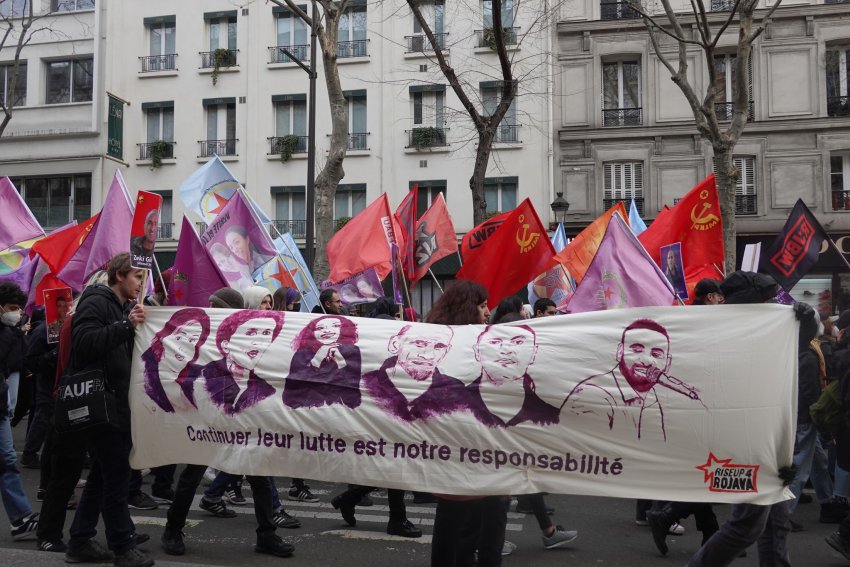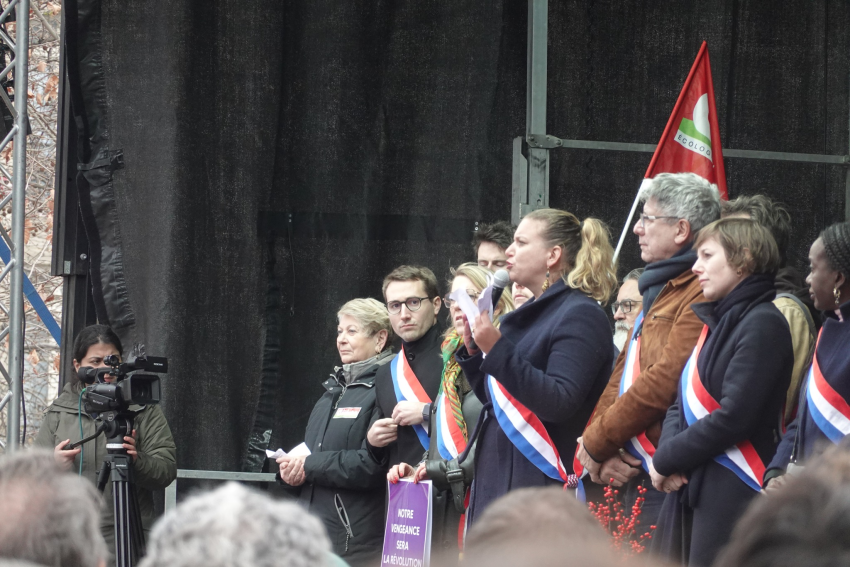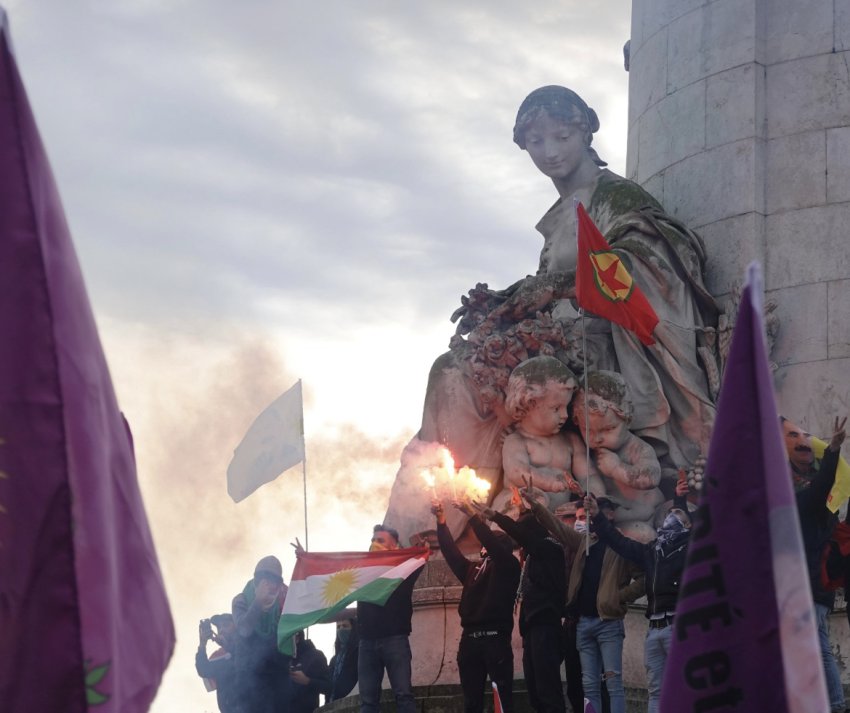
A large march took place in Paris, on January 7, to demand justice for three Kurdish female activists — including Sakine Cansız, a co-founders of the Kurdistan Workers Party (PKK) — were assassinated by a Turkish gunman in that city 10 years ago. The French government has withheld documents that could prove that the Turkish state was responsible by classifying them “top secret”.
Protests have been held every year to mark this atrocity, but this year’s action was supercharged with anger at another assassination of three Kurdish activists in Paris on December 23. Green Left's Peter Boyle spoke to Kurdish solidarity activist and writer Sarah Glynn who participated in the march.
* * *
What do you estimate were the numbers at the march and what were the main groups participating?
The organisers estimated an attendance of 25,000. Most were Kurds, and Kurdish organisations had organised buses from different parts of Europe. There were also trade unionists, and representatives from the different left parties, and sympathetic organisations and individuals.
The march started from opposite the Gard du Nord, near 147 rue la Fayette where the three Kurdish women were assassinated ten years ago, and many people took the opportunity, before it set off, to visit the community centre where the three Kurds were assassinated in December. Both places, in Paris’s 10th Arrondissement, were marked by portraits and flowers.
Among the sea of Kurdish flags and placards, there was a sprinkling of trade union flags, and the Union Syndicale Solidaires marched behind their own banner supporting the Kurdish struggle. All the French left parties were represented, with elected members standing out from the crowd with their blue, white and red sashes.
The final demonstration, in Place de la Republique, was addressed by the families of those killed and by leaders of the Kurdish community in Europe, and also by speakers from various organisations (including a representative from France’s Armenian community) and from the mayor of the 10th Arrondissement and political parties.
The politicians not only stressed the importance of a full investigation of both triple murders, but also the need to delist the PKK and stop criminalising Kurdish politics.
Sylvie Jan, co-president of l’Association France Kurdistan observed how public support for the Kurds has grown over the ten years since the first assassination.
We heard some important and strong words, but full the weight of the demonstration was summed up in the final lament, composed and sung by Diyar Mehrovi, a friend of the murdered musician Mîr Perwer.
Kurdish protest in Paris cr Sarah Glynn.png

French authorities have arrested the person who is alleged to have carried out the latest massacre and suggested that racism was his motive but Kurds and their supporters are not satisfied with this. Can you explain why?
The Kurds have no faith in the French authorities because of their deliberate blocking of the investigation into the 2013 assassinations. The man accused of that earlier attack conveniently died of a brain tumour in December 2016, a few weeks before he was due to go on trial, and the case was closed.
However, there is a wealth of evidence that he was working for the Turkish National Intelligence Organisation and that the French state impeded the investigation, and they have closed access to crucial defence documents. The families of the murdered women began a civil action and managed to get the case reopened in 2019, but the state has refused the request of the judges to declassify the documents.
After the assassinations on December 23, the French Interior Minister, Gerald Darmanin, was very quick to declare that this was the action of a lone gunman – to dismiss any wider conspiracy and so rule out a terrorism investigation. The man who fired the gun was a Frenchman who has also been accused of an earlier racist attack on Somalis, but he was just out of prison, and could have been recruited to direct his violence against the Kurds by someone he met inside. The Kurds argue that there are several circumstances that suggest a planned and targeted attack.
With the approaching tenth anniversary of the first assassinations, this was a significant period, and at the time of the recent assassination there was supposed to be a large meeting at the community centre to plan for last Saturday’s demonstration – thankfully, delayed an hour due to transport problems. An attack at this time could have been an even worse disaster for the Kurdish community.
After shooting into the community centre – and making sure that Evîn Goyî was dead with a second shot – the gunman shot at the Kurdish restaurant opposite the centre, and then went down the road and entered theKurdish hairdresser where he was eventually caught by the workers as he reloaded his gun. The community centre is an important place for the French Kurdish community and all three places are Kurdish. Shops of other nationalities between the restaurant and the hairdresser were not attacked.
The day after the recent assassinations, Turkey’s Home Minister, Süleyman Soylu, stated: “Tayyip Erdoğan will not only purge the terrorists in Turkey, but also the terrorists in the world.”
The Turkish government appears to want Kurds to believe that Turkey is behind this assassination, and to be confident that the French authorities will not investigate this.
In a live broadcast on CNN-Türk in February 2021, the former head of the Turkish General Staff’s Intelligence Department not only admitted that the 2013 assassinations were an operation by the Turkish state, but also called for more of the same, telling viewers, “They also have their elements in Europe. We have to do something in this direction in Europe. I mean, it was already done once in Paris …”
No action was taken then either.
Kurdish protest in Paris cr Sarah Glynn.jpeg

What are the barriers to a proper public investigation of the latest and the 2013 atrocities?
It is widely understood that, for political reasons, the French government will avoid any investigation that could implicate the Turkish state.
As in so many other areas, Turkey is allowed to spread their terror with impunity.